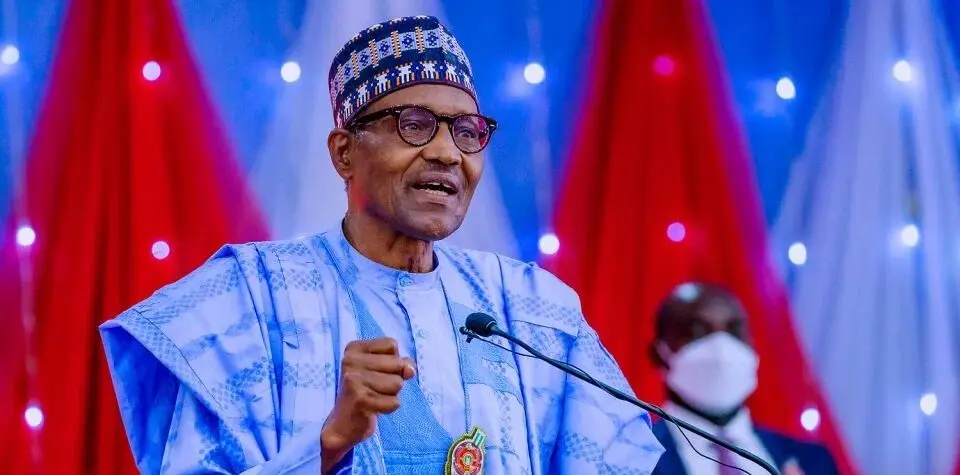Business News
We’ve generated the sum of $547 million through 5G spectrum auctions – FG
“As part of our efforts to expand our digital infrastructure; we increased our 4G base stations from 13,823 to 36,751 from August 2019…

So far this year, 5G spectrum auctions have brought in $547 million for the federal government. President Muhammadu Buhari made this announcement on Tuesday at the opening of the National Shared Services Centre in Abuja, which also houses a Cyber Security Operations Centre, Network Center, and Call Center. The National Shared Services Centre is a one-stop shop for Ministries, Departments, and Agencies (MDAs) to interface with citizens.
Additionally, he pointed out that Nigeria’s IT sector, which accounts for 18.47% of the nation’s GDP, has helped the economy flourish.
Regarding the Information, Communication, and Technology (ICT) Sector’s (constant growth) contribution to economic diversification, he said:
“As part of our efforts to expand our digital infrastructure; we increased our 4G base stations from 13,823 to 36,751 from August 2019 to date, and this has increased the percentage of 4G coverage across the country from 23 percent to 77.52 percent also from August 2019 to date.
”We have also followed this up with the roll-out of 5G services. Notably, the digital economy sector has excelled in generating revenue for the government.
Citing 5G auction sales, he said Nigeria’s digital economy had done better than expected:
”In particular, at the Ministerial Retreat that I chaired from Oct. 18 to Oct. 19, 2022, our independent analysts adjudged the digital economy sector to have generated 594 percent of its revenue target from the 2019 baseline.
”This is very commendable. As part of these unprecedented achievements, the sector generated over 547 million dollars from auctioning the 5G spectrum alone”.
He claimed that his administration’s initiatives, such as the suspension of excise duty in telecoms, have helped the sector flourish.
“These initiatives are part of our administration’s efforts to position the digital economy as a key enabler for the diversification of our economy and as a catalyst for the transformation of every sector of our economy.
“You will recall that I unveiled and launched the National Digital Economy Policy and Strategy for a Digital Nigeria on the 28th of November, 2019 and I am very proud of the giant strides and the unprecedented progress that we have made in less than one year since the unveiling.
“To ensure that the digital economy sector remains successful and in order to reduce the burden on citizens, I recently approved the suspension of the proposed excise duty in the telecoms sector, as any initiative that will lead to hardship for the citizens would not be pursued,’’
Other policies, according to him, include the National Policy on Virtual Engagements for Federal Public Institutions, which was approved on October 14, 2020, and allowed the FG to formally establish online meetings for the government.
In addition, we have grown our digital identity enrollments from 39 million in October 2020 to over 92 million now, and our administration’s commitment to encouraging data promotion and privacy is gaining recognition throughout the world, he said.
“We want to turn Nigeria into a magnet for digital talent worldwide. The Honourable Minister of Communications and Digital Economy had proposed the executive law, he continued.
READ MORE: Nigeria, South Africa to push Africa’s 5G connections to 150 million by 2028
